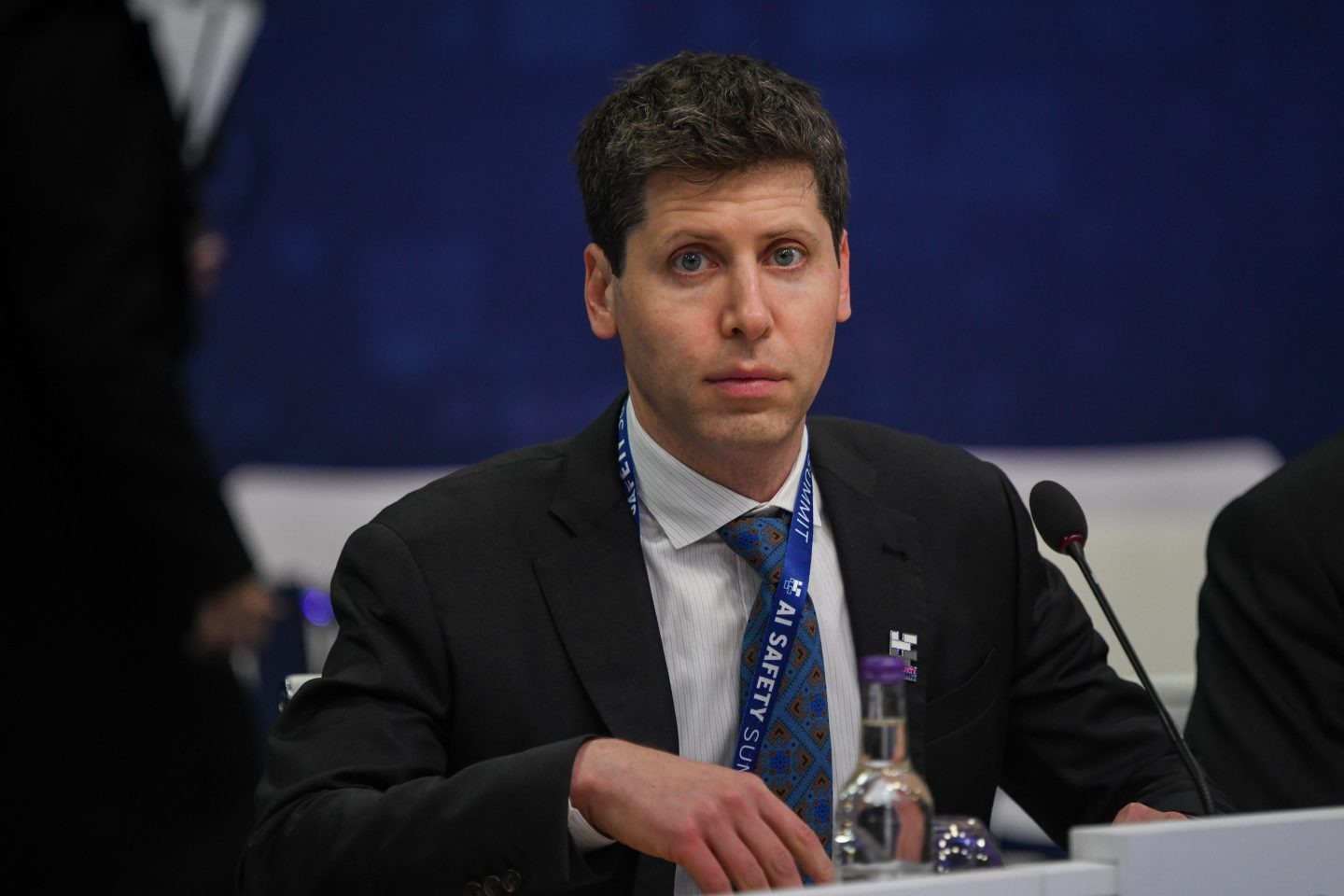Good morning, Peter Vanham here in Geneva.
Wherever you stand in the Shakespearean drama unfolding at OpenAI—the latest twist is the return of Sam Altman as CEO—there is something we can probably all agree on: it could only happen in Silicon Valley.
In one way, of course, the Valley’s luminaries are just like the rest of us: they are driven by mundane, human desires such as fame and wealth, despite allegedly pursuing work that “benefits all of humanity.” But in another, much less cynical way, this week’s unfolding events is proof of Silicon Valley’s unique ability to move faster and recover better from setbacks than any other place in the world.
For that trait, the industry can thank—of all things—California’s legal code.
Sampsa Samila, an AI professor at IESE who has studied the effect of California’s laws on its tech sector since the 2000s, reminded me of its role this week.
In most other global tech centers, including those in other U.S. states, the entirety of Europe, and China, employees with access to confidential business information can be forced into a non-compete clause. It bars them from taking their knowledge elsewhere at a moment’s notice, leading to a more orderly business ecosystem but also more static competition.
Not so in California.
The state’s Attorney General Rob Bonta reminded employers and workers last year that “noncompete agreements have no place in California.” In the U.S., only Minnesota, North Dakota, and Oklahoma have similar strict bans, and those states are hardly tech hubs.
The legal peculiarity has enormous consequences, on display this week. It meant that Microsoft, OpenAI’s biggest investor, could easily hire the startup’s top management overnight. It meant that employees could threaten to quit OpenAI en masse and follow their fired CEO elsewhere.
Just imagine a similar drama unfolding at Mistral, France’s most-hyped AI startup, or DJI, one of China’s top AI firms. Any attempts at a similar employee revolt or brain drain would be dead in the water. In China, a noncompete clause can prohibit employees from working for a competitor for up to two years. The situation is not much different in France.
There are many more consequences of California’s libertarian bent, which was etched in law long before technology dominated its economy. Not all are positive. Just think of California’s persistent and growing inequality and bifurcated labor market, for example, or the cutthroat competition in the tech sector and the excesses that come with it.
But this week, California’s legal libertarianism played a positive role. It helped Silicon Valley continue to thrive even—or especially—when the leadership of one of its most promising companies fumbled.
A reminder that we’ll be off tomorrow and Friday. Happy Thanksgiving to all who celebrate!
More news below.
Peter Vanham
peter.vanham@fortune.com
@petervanham
TOP NEWS
Fortune’s AI innovators
Companies big and small feature on Fortune’s inaugural “AI Innovators” list, highlighting 50 firms on the forefront of the buzzy new technology. Featured firms range from corporate giants like Microsoft and China’s Baidu, right down to up-and-coming platforms, like Sudowrite, a service targeted to creative writers. One in four dollars invested in U.S. startups this year went to AI, according to Crunchbase. Fortune
Beijing gives Broadcom the green light
China approved the merger of chip firm Broadcom and cloud computing company VMware on Tuesday, finally allowing the $61 billion deal to close. The merger gives Broadcom a foothold in the cloud computing market. China’s antitrust regulator, which reserves the right to evaluate mergers from companies with significant China business, has killed previous mergers by refusing to issue a decision. Bloomberg
Binance’s plea deal
Binance is getting a chance to live and fight another day, following a $4.3 billion settlement with the Department of Justice. The crypto exchange pleaded guilty to charges of money laundering. In a separate plea deal, founder Changpeng Zhao agreed to step down as CEO. Yet Fortune’s Jeff John Roberts notes that the company’s once-cavalier corporate culture will take a hit from one of the settlement’s provisions: a court-appointed monitor with sweeping powers to oversee Binance’s business practices. Fortune
AROUND THE WATERCOOLER
Oil-rich Saudi Arabia is shelling out for the world’s top sports, but can Mohammed bin Salman buy himself an auto industry? by Christiaan Hetzner
CEO in name only: How to tell if you’re a CE-No, and what to do about it by Lila MacLellan
FOMO, ‘when’ and ROI: CEOs are stressed about AI, and an army of experts are helping them decide where to place the right AI bets by Sheryl Estrada
Millennials say they need to earn half a million dollars a year to be happy—nearly four times as much as other generations by Alicia Adamczyk
This edition of CEO Daily was curated by Nicholas Gordon.
This is the web version of CEO Daily, a newsletter of must-read insights from Fortune CEO Alan Murray. Sign up to get it delivered free to your inbox.













